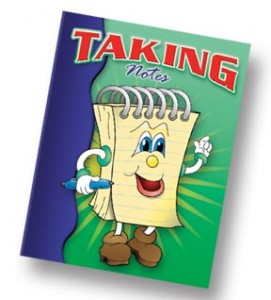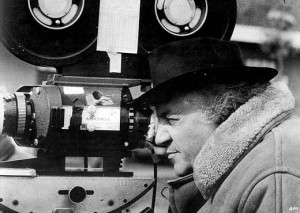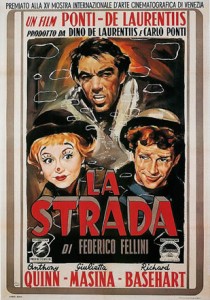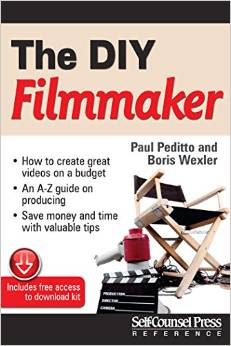Taking notes sucks.
When I began writing I was awful at taking notes. It was hard to sit there and listen to six months of work get dissected, hammered at, picked away at, and otherwise nitpicked. Some self-anointed expert rides in, spends three hours in the world you created making judgments, collects a fee and rides off into the sunset, leaving you with a dent in your bank account and six months of rewrites. Screw that!
Over the years, I pretty much did a 180 on this thinking. I came to welcome notes. I came to appreciate the time people put in trying to help me to my goal, which was to become a working screenwriter.
So how did this metamorphosis come about?
I believe it was Fellini who talked about the three movies: The movie imagined by the creators, the movie made, and the movie perceived by the audience. Three very different movies.
When I consult with a writer on their script, our note sessions (three hours, often by phone) are valuable if only for answering these three questions:
1: What is the movie in the writer’s mind?
2: What is the movie I read, objectively, that the writer delivered on paper?
3: How can we bridge questions 1 and 2, and bring out the movie in your mind for future readers and an audience?
Note-giver and taker usually come at the process from opposite ends. You, the writer, know your world inside-out. If anything, you’re too close to it. What is needed, and what is of value, is a set of objective eyes. Someone who will not bullshit you. Someone who can be critical but who can also write; someone who offers solutions, not just problems. This is the job of giving notes.
Taking notes is an art. Some Hollywood finochio (or worse, minimum-wage earning ex-Film & Video student) ripping it to shreds over his triple espresso. Good Reader, I get your frustration, 100%.
Here’s what I recommend you do: Question authority.
You are allowed to make sure the person giving you this invaluable advice isn’t a mental midget. I mean, what qualifies them? Who are they?
I’d suggest you develop an “inner circle” of people you trust; people who won’t bullshit you (no Moms in the inner circle), people who have some experience with writing or critique or movies. You’re not paying them so you’re at their mercy when it comes to when you get the notes back, what the “notes” are, or if they’re of any use. Look for correspondences in what people say. If you give it to five people and all have a problem with your female lead, that’s where you need to focus the rewrite. If all five give you five different problems, well, that’s where it gets tricky. I always liked what Pinter said on this subject. Paraphrasing:
“When I get 10 different notes from 10 people, I do the 11th thing.”
This is where you might consider a “professional.” You’re paying, so there’s accountability. A consultant will bring objectivity and a track record. Usually they have a terrific website too, which must mean they’re for real (!) The danger is that with objectivity you get distance. I mean, you never meet these folks. You talk to them afterward, what, a single hour on the phone? You get a package of notes back and are left to interpret what it’s supposed to mean.
I’ve been a script analyst for nine years. I’d recommend, if you’re looking to hire someone, that you find a consultant with whom you have access. Can you email the script analyst directly? Is there a telephone conference? Are there line notes that you can read written into the script? With the bigger sites you won’t get this personal attention. You won’t have a clue who actually read your script, nor if they were in a foul-mood when they read the script you spent four months writing. You’ll never know. When looking for a professional, look for access.
One last thing about taking notes…
Don’t defend. You paid for notes, listen to the notes! That’s not to say you have to agree with every note. You don’t. But you should at least listen to what the objective reader has to say. Otherwise, why pay for the opinion?
Don’t get angry. Don’t take it personally. Don’t explain what you meant to do. The script in its present form may not work for the reader. The question is: How do we get it to where it needs to be?
The reader has a responsibility to give notes in the context of your movie. If I read your script, I don’t talk about what I think it should be. Notes should be within the bounds of the existing story. What you don’t want to hear is, “It’s not working as an apple. I’d go with a tangerine, maybe a whole fruit salad.” “Your kitchen-sink drama about Italian-gelato-vendors-in-space isn’t working for me. I’m seeing it more as a musical period-piece set in France…” If you’re hearing the equivalent of this, well, you’re screwed. Too late to cancel that Paypal payment?
I like to tell clients: You don’t have take a single note of mine. I’m just one opinion. I might be wrong.
But I might be right.
Keep an open mind.







Thank you so much for this.